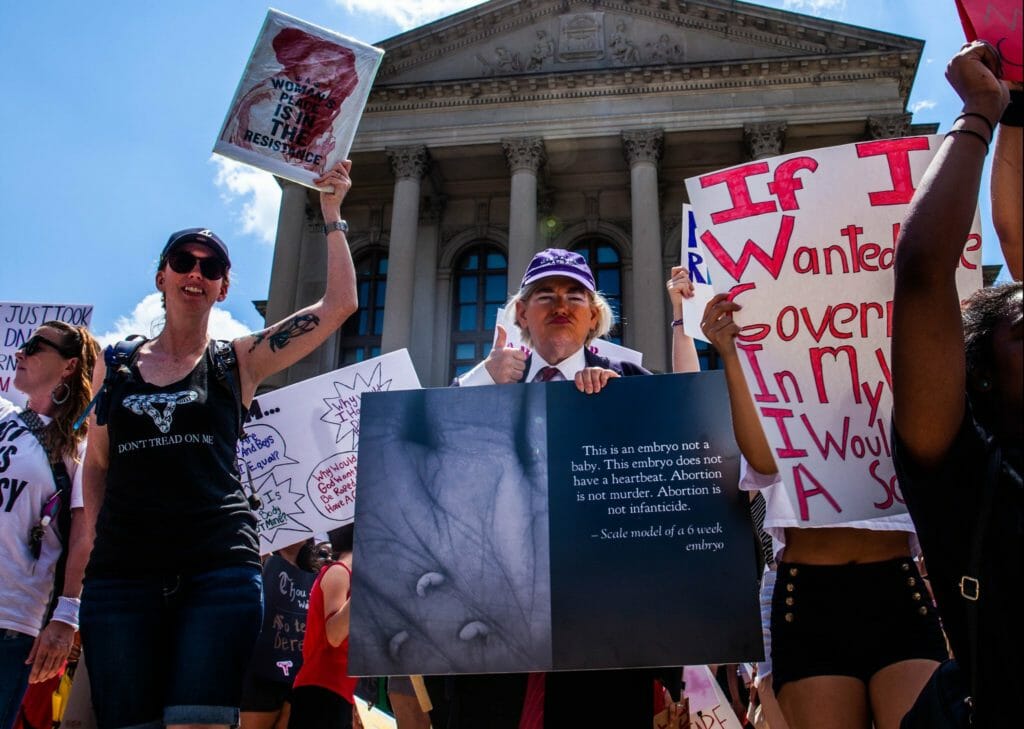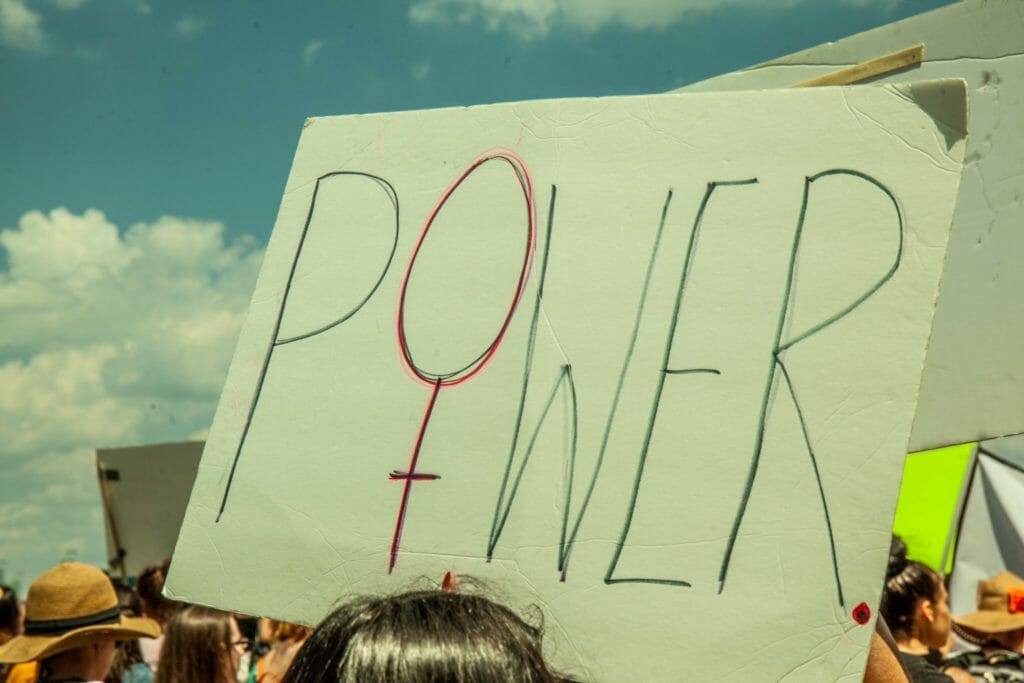The story of Brooks County and the Quitman 10+2
Content warning: This article contains descriptions of racial violence.
There\’s an underlying illness in Georgia resting in small, rural counties outside of Atlanta’s perimeter. While these smaller counties on their own constitute a small fraction of Georgia’s overall population, collectively they function as a well-oiled machine to produce the voting trends we see today. It\’s crucial to recognize how intricate, insidious, and intentional systemic racism and voter suppression is and how voter disenfranchisement is the richest fodder that allows this flawed system to thrive. Each of Georgia’s counties could be historically and socially studied and would likely yield similar trends, histories, and outcomes. For the purpose of this article, I find myself staring at Brooks County, Ga., which has been flaring with symptoms of malaise for some time.
Brooks County sits just north of the Florida-Georgia border with a population of 16,243, according to the 2010 U.S. Census. Quitman is its county seat and is the main locale of the county; this is not to be confused with Quitman County, Ga., which is often mistakenly cited when describing Brooks County and its county seat.
It is historically known for having the highest rate of lynchings in Georgia from 1880 to 1930, with Georgia having the highest rate of lynchings in the country during that time.
Like most of the Deep South, Brooks County carries a heavy history of segregation and racial violence. The county takes its name from Preston Brooks, a pro-slavery Congressman from South Carolina best known for violently attacking abolitionist Charles Sumner with a cane on the floor of the U.S. Senate in 1856 and pushing the country closer towards the Civil War. It is historically known for having the highest rate of lynchings in Georgia from 1880 to 1930, with Georgia having the highest rate of lynchings in the country during that time. Quitman housed gruesome violence from slave rebellions to race wars, mass lynchings, and manhunts. The county was known on a national scale for the racially motivated violence by whites against blacks.
In May 1918, a plantation owner named Hampton Smith beat a black man by the name of Sidney Johnson, who was unwillingly working for Smith under Georgia\’s convict lease system. In retaliation, Johnson killed Smith—and the backlash was tenfold, leading to a weeklong manhunt that resulted in the lynchings of 13 African Americans. Among them was 21-year-old Mary Turner, who was eight months pregnant. They tied her to a tree, cut her body open, tore her child out of her womb, and crushed the baby’s skull with the heels of their boots until it was surely dead. They then doused her in gasoline, shot up her body, and burned her at the stake at Folsom\’s Bridge. Her crime? Protesting the murder of her husband amidst the lynching spree.
You can\’t read about this violence in libraries or history books. There might be site markers with vague explanations of wrongful deaths, but you have to know the descendants of the slain and their witnesses to get the story. And they fight to have these stories heard. The site markers are regularly defaced, showing us what little remnants of this history of violence still exists. It\’s also still alive. These historical site markers are metaphors.
Turner\’s lynching catalyzed anti-lynching campaigns for the 1922 Dyer Bill, which aimed to make lynching a federal crime. This bill had the potential to be a national move in the direction of racial equality and justice for people of color. However, Southern white senators effectively shot down the legislation, largely due to successfully disenfranchising most black voters in the South. I repeat: White men purposefully, intentionally, deliberately fought against legislation that would make atrocities like the lynching of Mary Turner a federal crime.
There is a reason why I\’m rehashing historical tragedy that happened over a century ago: because it should always be fresh in our heads when we are evaluating the functionality of systems and institutions that remain plagued by racism and oppression today. The emergence of the convict lease system in the Post-Reconstruction era (1880s and after) effectively led to the criminalization and mass incarceration of African Americans. The institutionalization of racism and slavery, as well as the early stitchings of what we presently call the “prison industrial complex,” begin here—at least for Brooks County. What do prisoners and slaves have in common? They both can’t vote.
What do prisoners and slaves have in common? They both can\’t vote.
Voter disenfranchisement is multifaceted and has become intricately ingrained throughout the decades previous to our contemporary moment. It\’s exemplified by the rural south. It presents itself as laws, tactics, and constitutions in the Post-Reconstruction Era that aim to deliberately keep people of color from voting or registering to vote. This led to the constitutionalization of many social programs that excluded or disproportionately affected African Americans, and as a consequence, enshrined their inability to serve as a juror, rendering juries in the South all-white. Although voter disenfranchisement technically ended in 1965 with the passing of the Voting Rights Act, its aftermath still lingers. Disenfranchisement, compounded with mass incarceration of people of color, map manipulation (better known as “gerrymandering”), and hindering voters’ accessibility, still effectively and almost exclusively excludes the poor and people of color.
At the beginning of my research, I was delving into the alleged voter scandal regarding the Brooks County School Board in 2010, when African Americans took the seat majority for the first time in the county’s history. Instead of rewriting what several articles have already covered in their accounts of the racially motivated investigations to halt mobilization efforts that helped many elderly and disabled Brooks County residents to vote in that year\’s election, I want to expand on one important point. Because I find myself burdened by something.
I’m burdened by how this county is a disgustingly perfect example of how racism—not only in regard to voter suppression but also in regard to African Americans even possessing power in government—is so deeply institutionalized and executed. Yet it’s saddening, because this is no anomaly or fluke in the system. This is business as usual.
Enough time has passed. Too much time. Racism is systemic; same today as it’s always been. It just functions differently now and there are more ways to hide it. It\’s finely ingrained in all the inner workings of America. What was once deliberate is now inherent. Then, when one finds a small fissure in this system—one with just enough room for a radical change, a promotion of racial equity and justice—the wheels screech to a halt and the white men in power feel an itch on their bootstraps. How could this happen? There\’s no possible way.
So frankly, it makes sense that it was under Kemp’s tenure as Secretary of State that there was a full-on investigation of voter fraud launched in Brooks County when African Americans took the seat majority of their Board of Education. I\’m sure white people were stunned. Black people can\’t have power there! Remember what happened a hundred years ago when they revolted? And who is a more fitting human being to make this call than the Secretary of State himself—the man responsible for counting the ballots of his own election. If anyone knows voter fraud, it\’s him.
I won’t further digress into sarcasm, because the Quitman 10+2’s actions were not voter fraud. It was only alleged as such because those elected and the people charged in their mobilization efforts are black, which is crucial to examining this entire process. Had the 2010 Brooks County Election yielded results that did not irritate the historically white majority of the school board, none of this would have been called into question. None of this would have been upsetting news. This is all about the races in the races. We cannot be foolish enough to believe any politician who denies this. How can anyone say racism doesn’t exist in America anymore when it’s what this country was founded on?
According to VICE Magazine in its 2014 article “Top Georgia Officials Are Going After Black Leaders Who Organized Voters,” Kemp’s 2010 investigation of the Quitman 10+2 spawned the indictments on voter fraud charges of 12 people in Brooks County as they were being held responsible for the overwhelming African American voter turnout that led to the first-ever black majority of the county’s Board of Education. Some individuals were indicted on over 30 charges.
The investigation yielded no evidence of fraud or coercion—just like the rest of Kemp’s investigations—leading the state to desperately attempt to catch the Quitman 10+2 on technicalities of assisting voters with their absentee ballots, which ultimately led nowhere. In 2012, Gov. Nathan Deal issued an executive order forcing the removal of three black women from the school board, citing the fact they had been charged with voter fraud.
The Quitman 10+2 investigation called into question the constitutionality and ethics of absentee ballots: what are the circumstances in which voters are allowed or supposed to exercise their right to use an absentee ballot? The answer is simple: whenever they want, because it\’s their right. Witnesses called by the prosecution went as far as to say the investigation and trial against the Quitman 10+2 was bullshit racism—nothing more, nothing less—and vehemently attested to voters’ rights to fill out an absentee ballot.
Conservative school board members such as Larry Cunningham, who’s been on the board for 26 years, claim that the political activism of encouraging voters who are physically unable to make it to the polls is an abuse of the absentee ballot. But his motives to support the investigation were blatantly propelled by fear of change. Cunningham has a lot of clout in Quitman, being the owner of peanut buying and packing company R.L. Cunningham & Sons, and his family has worked for generations to instill the economic and political power that he now possesses.
“There is a political group in Brooks County that does not share the values of the majority of the current board members… The members of this party will risk going to jail to gain control of our schools,” he told VICE.
His statement is key. Not only does he incite an aura of hysteria and betrayal around a group of black people, but he then tactfully includes a stated rejection of there being racial motives. Doing so is a perfect example of the politics of inclusion. The former statement incites mass hysteria which will be automatically accepted by those in agreement with him; the latter functions as a buffer that, at least on the surface, renders his comments devoid of racism and placates any allegations of such. It’s a true politician’s equivalent to stating, “I’m not racist, but…”
This is the history of a county made up of a little over 16,000 people—less than one percent of metro Atlanta’s population. But its history bleeds. They’re a part of the collective that’s running the show.
Voter disenfranchisement isn\’t just about preventing black voters from selecting oppositional candidates; it is driven by a fear of people of color being in positions of power. And it’s clear that voter suppression is not new since we can note its continuation and expansion back to Reconstruction. When I speak about the inherency of racism, I’m actually illuminating the fact that racism as praxis doesn’t necessarily need to be overt anymore because it is an essential ingredient in our systems of government, from voting to criminal justice. The system isn’t dead or broken. It is thriving and adapting, scrolling faster than us or the 24-hour news cycle perpetuating it.
And it’s fucking racist.




